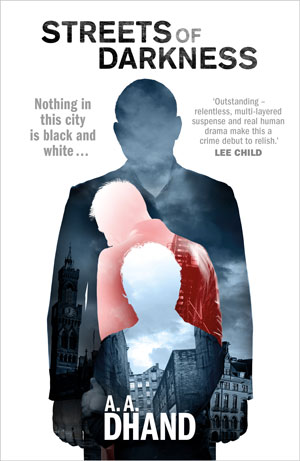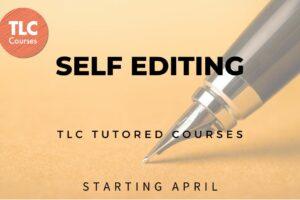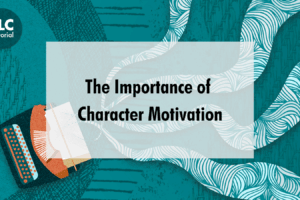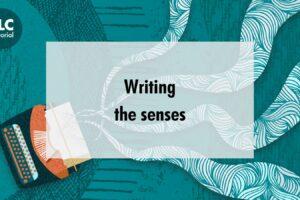I always wanted a “publishing deal”.
I started writing in 2004; a time when self-publishing was in its infancy. I had read The Surgeon by Tess Gerritsen and was hooked. I read she was a doctor who loved writing and realised anybody could try it. I was seduced by her style, the cover-art of her books and the badge on the side of her books; Bantam. I wanted that and I started writing immediately. It took me twelve years, a million words and the journey cost me approximately seven thousand pounds. It sounds like a lot but that’s six-hundred pounds a year – most people’s hobbies cost them more. I treated it as a hobby, a serious one, in the hope of one day having Bantam on one of my books. Ambitious maybe; but if you are going to dream – why dream small?
First
Sounds obvious but finish your novel to the best standard it can possibly be. Draft it, re-draft it, and polish it. Because the next step for traditional publishing is critical and perhaps the hardest.
Get an agent
On finishing my manuscript back in 2008, I needed confirmation it was credible so I submitted it to The Literary Consultancy. After four weeks, I received a detailed ten-page report. It was both complimentary and critical and I set about implementing changes.
Two months later, it was ready so I bought a copy of The Writers and Artists Yearbook. I drafted a letter, attached the summary from The Literary Consultancy and submitted to twenty agencies, focusing on crime-specialists.
The first rejection was painful. The second world-ending and so on and so forth …
The first rejection was painful. The second world-ending and so on and so forth until the drama subsided and one Tuesday afternoon I received a phone call from a marque crime-agency who wanted the full manuscript and to meet. Two weeks later, in London, I was made an offer which I accepted. By this point I had received three expressions of interest. I spoke with TLC Director Rebecca Swift who advised me the agency who had offered to represent me were one of the best.
What followed was two years of re-writes culminating in a failed novel and a meeting with the agency to “write something else.”
I was devastated and spent the next two years starting my own business and pushing writing aside.
In late 2012, I started a new project, utilising lessons from the editor at the agency. I travelled to India where the second half of my novel was set, got embroiled in all sorts of chaos and in October 2013 submitted Fields of Blood to the agency.
The turned it down after three chapters and a (terrible) synopsis.
I had been gutted two years before. Now I was beside myself. I couldn’t submit anywhere else as I was contracted but could I leave such an esteemed agency?
Would it be literary suicide?
Whilst pondering this very difficult decision, in December, I received a phone-call from Graham Smith who is a well-respected reviewer for ‘Crimesquad’ informing me that I had won his inaugural crime-writing competition beating seventy others novelists. In March I attended a weekend masterclass with internationally published authors and the consensus was that I had a novel worthy of representation. I did contemplate self-publishing at this point, but there was a little voice in my head which whispered, “Keep going.”
My confidence was buoyed after the competition win but I still needed confirmation the book was credible …
After many sleepless nights I parted with my agency and set off to find a new agent. My confidence was buoyed after the competition win but I still needed confirmation the book was credible (needy author alert!). I tracked down a retired editor who had worked with Sophie Hannah and Mo Hayder and paid her for an expert critique. A month later, I met with her and whilst there were corrections to be made, her general feeling was it was sharply paced, high on drama, just needed tweaking and calming down. I took her advice, spent a month on the manuscript and felt it was ready.
Finally, I attended a Faber Academy workshop specifically tailored to finding an agent – what to write in the letter and how to pitch. Following the course I submitted to twenty agents and the rejections started flooding in.
 However, I received a request from a big agency in London to meet for coffee. An offer wasn’t made but they enjoyed Fields of Blood, felt it needed some work and would I send them my work in progress (Streets of Darkness) once it was completed. They were ultimately asking, “What else have you got in the tank?”
However, I received a request from a big agency in London to meet for coffee. An offer wasn’t made but they enjoyed Fields of Blood, felt it needed some work and would I send them my work in progress (Streets of Darkness) once it was completed. They were ultimately asking, “What else have you got in the tank?”
A week later, I was speaking with Graham Smith, (whose competition I had won earlier) and he mentioned a lady called Jax Miller, had signed with an agent called Simon Trewin and landed a high-profile publishing deal. He also told me, I had pipped Jax in his competition and Simon might be interested.
I emailed Simon, got an immediate reply with,
“SEND THE BOOK OVER NOW!”
He loved it. His team loved it and I travelled to London where an immediate offer was made and accepted. WME are the largest talent agency in the world and I was hugely impressed with their set-up. Oxford Street is somewhat different to Bradford! 2014 closed on a high – a new agent, the excitement of my work finally being sent out on submission.
2015 started with news that Simon was sending Fields of Blood to one particular editor who read the book but felt it wasn’t for him. I was focused on Streets of Darkness and finished it in March, before Simon had sent Fields of Blood anywhere else. He read my new novel, loved it and sent it to Bill Scott-Kerr at Transworld on a Friday evening.
Monday brought fantastic news … Bill loved the book and was sharing it with his team
Monday brought fantastic news. Bill loved the book and was sharing it with his team – they work on a system where everyone needs to sign-up to it. They all wanted the book and Wednesday 20th May 2015 finally saw my dream realised. A two-book offer, a great return on my efforts and a publisher I had dreamed of signing with back in 2004 when I started writing.
As you can see, mine was a far from simple process. There were many opportunities to self-publish but not knowing enough about the process, I never really gave it much thought. I was motivated to do what others had said would prove impossible. From the first time I put pen to paper I wanted the Bantam badge on my book. Every time I read a new Tess Gerritsen novel, I would look at the badge and it inspired me.
I felt I had a unique selling point with my stories and failing with a million words had made me sharper, keener and more resilient. Every hundred thousand words brought some new skill, reaffirmed the discipline and provided reassurance.
The pros of being traditionally published are access to a monstrous network of marketing, media, editors, copy-editors and a team who all get behind you to make as much noise as possible and support their investment.
To date, I cannot see any cons. There are commitments, meetings, panels, plenty of dialogue about covers, blurbs, editing but it is all a team effort.
I treat my writing as a serious hobby, never with the pressure of “all or nothing”.
I treat my writing as a serious hobby, never with the pressure of “all or nothing”. I keep a regular job, discipline myself to keep writing and kept investing in the craft, whether it be courses or editors. Ultimately, with traditional publishing, you are an employee, not a business owner like in self-publishing. The novels need to make a return on the publisher’s investment or a new contract perhaps won’t be offered. It is far from stable in the long-term. As an author, I keep reading, focus on what makes great crime-fiction and ask myself how can I bring my own unique style of story-telling to the table?








